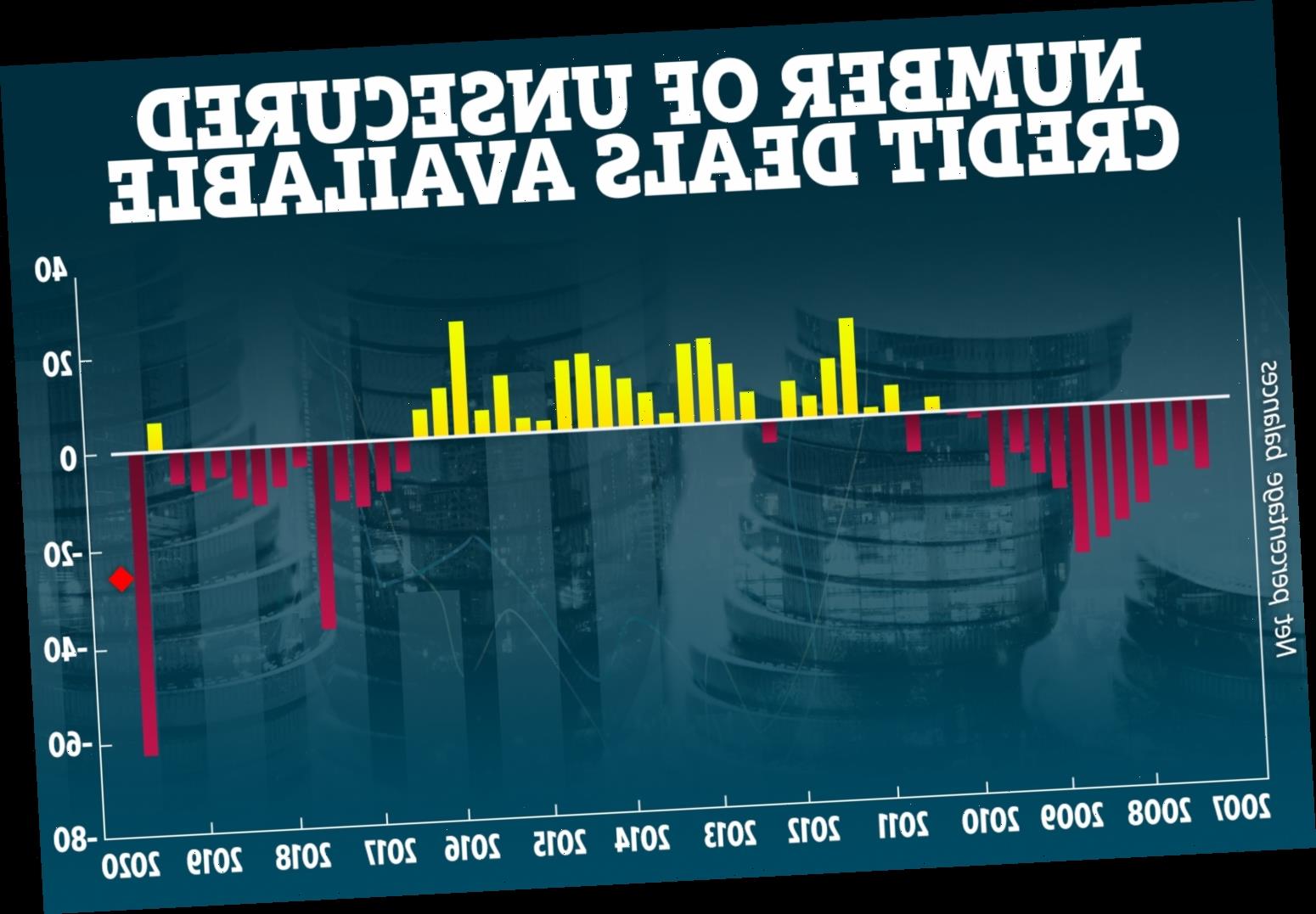THE number of Brits being rejected for credit cards and loans has soared – and experts warn that it's "only going to get worse".
The demand for loans is set to increase in the coming weeks, a survey by The Bank of England has found, but borrowers could find it harder to take out a deal.
The Bank's Credit Conditions Survey asked banks and building societies about what they expect for borrowers in the coming months.
The number of mortgages, credit cards and loans available on the market has already "dried up faster than it did during the [2008] financial crisis", said Sarah Coles, personal finance expert at Hargreaves Lansdown.
Sarah added: "It goes to show just how worried banks are about the state of the economy, and what could happen to jobs and house prices."
Unemployment has risen by 649,000 since lockdown, with the coronavirus crisis claiming 74,000 just last month, according to figures released today by the Office for National Statistics (ONS).
How to cut the cost of your debt
IF you're in large amounts of debt it can be really worrying. Here are some tips from Citizens Advice on how you can take action.
Check your bank balance on a regular basis – knowing your spending patterns is the first step to managing your money
Work out your budget – by writing down your income and taking away your essential bills such as food and transport
If you have money left over, plan in advance what else you’ll spend or save. If you don’t, look at ways to cut your costs
Pay off more than the minimum – If you’ve got credit card debts aim to pay off more than the minimum amount on your credit card each month to bring down your bill quicker
Pay your most expensive credit card sooner – If you have more than one credit card and can’t pay them off in full each month, prioritise the most expensive card (the one with the highest interest rate)
Prioritise your debts – If you’ve got several debts and you can’t afford to pay them all it’s important to prioritise them
Your rent, mortgage, council tax and energy bills should be paid first because the consequences can be more serious if you don't pay
Get advice – If you’re struggling to pay your debts month after month it’s important you get advice as soon as possible, before they build up even further
Groups like Citizens Advice and Money Advice Trust can help you prioritise and negotiate with your creditors to offer you more affordable repayment plans
Thousands more redundancies are expected to follow in the coming weeks as employers are to start paying into the furlough scheme from August.
In May, lenders pulled almost all mortgages for first time buyers that only required a 5 per cent deposit, with the majority of 10 per cent deposit mortgages being withdrawn last month.
But despite fewer products on the market, lenders anticipate the number of applications for mortgages and remortgages to increase as lockdown eases.
Depressingly, lenders expect to continue to slash the number of credit deals available by the end of August making it even harder for borrowers to get financial help.
The length of interest-free periods on agreements have already dropped too, and banks and building societies expect them to get even shorter over the next six weeks.
Credit limits are likely to be significantly reduced, while the number of defaults on loan repayments are expected to soar in the final three months of the year.
Borrowers have been able to take three month payment breaks on loans, mortgages and finance deals if their household income has been negatively impacted by the pandemic.
But eventually, these will come to an end and customers will be expected to pick up the payments again.
The report also suggested that the number of applications for credit that are rejected will also rise over the next few months.
It comes as MoneySavingExpert, found that payment holidays could stop you from getting a mortgage in the future, even though they won't affect your credit score.
The survey was carried out between June 1 and 19 – before the Chancellor's mini-Budget last week.
Since the stamp duty tax relief was announced, there have been promising signs from banks and building societies that they're looking to lender to borrowers.
Nationwide and Coventry Building Society have already brought back mortgage deals for buyers with a 10 per cent deposit.
But Sarah Coles warned: "In the following three months, life is going to get even tougher for borrowers.
"Lending will be even harder to come by, and at the same time, the end of lockdown means demand is going to rebound.
"So more people are going to be left struggling to find the lending they need."
Source: Read Full Article

